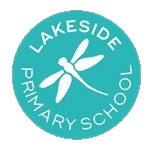Curriculum / Cwricwlwm

Our curriculum at Lakeside has been designed by leaders and teachers to build and develop knowledge and skills across and within year groups. Our identified curriculum driver subjects ensure our curriculum is broad and balanced with the skills of literacy, numeracy and DCF embedded throughout. Opportunities for creativity and flexibility in planning are identified within each Learning Project as teachers adapt to pupil voice ideas. The recent introduction of ‘Project Experts’ has enhanced further depth and links to the World of Work.
Under Curriculum for Wales, each Learning Project has four sections: Engage, Develop, Innovate and Express. Each new Learning Project begins with a launch of some kind in order to engage the learners in the subject. Often this is a visit to a place or an event, so in 2023, for example, Year 3 visited the National Museum in Cardiff to launch their Predator Learning Project; Reception children enjoyed a puppet show as the Engage element of their Learning Project, Puppets and Popups; Year One launched their Rio de Vida project all about Brazil with a south American dancing workshop. At the conclusion of a Learning Project, there is also sometimes a visit as the ‘Express’ element. For example, Reception visited the National Museum in order to conclude their Dinosaur project. On this visit, they had opportunities to ‘express’ their knowledge and understanding by asking questions of the experts available in the museum about dinosaurs, and were also able to apply their learning to the skeletons and models that they found in the museum.
Careful curriculum mapping in the long/medium and short term ensures clear progression of skills, increased knowledge and continuity across year groups and progress steps. This allows adequate time for pupils to practice and apply new skills, embed knowledge and progress through the curriculum at an appropriate pace. Areas of Learning and Experience Drive Team leaders are knowledgeable of the progression of their subject across the school and use this to inform their planning and overviews. These are also referenced within the school cluster AOLE working groups for a consistent localised approach.
Our current learning projects 2024-25
|
|
Autumn |
Spring |
Summer |
|
Nursery |
How many colours in a rainbow? Exploring Autumn |
Starry Night Once Upon a Time |
Are Eggs Alive? Build it up |
|
Reception |
Getting to know you Do you want to be friends? |
Dangerous dinosaurs Puppets and Pop-ups |
At the beach On the Farm |
|
Year 1 |
Memory Box Moon Zoom |
Rio de Vida
|
The Enchanted Woodland |
|
Year 2 |
Mess, Muck & Mixtures Heroes and Heroines |
Towers, Tunnels and Turrets Tales From Wales |
Our Natural World |
|
Year 3 |
Scrumdiddlyumptious Through the Ages |
Myths & Legends Tremors |
Flow |
|
Year 4 |
Burps, Bottoms and Bile Playlist |
Here & There (Wales and the USA) |
The Blue Abyss |
|
Year 5 |
Roses & Royals Tints, Tones & Shades (mini project) |
Alchemy Island |
Scream Machine |
|
Year 6 |
A Child’s War |
Frozen Kingdom Land of Legends (mini project) |
A Star is Born |
Leaders are well-informed of curriculum developments and implement strategies to improve practice and to meet the needs of our pupils more effectively. Through effective professional development, these improvements are embedded across the school, through INSET sessions and professional discussions. This enables high quality learning and teaching throughout the school.
The school ensures effective support and challenge for all pupils through skillful planning and tailors learning through use of scaffolding where needed, thereby allowing pupils to access work at an appropriate and challenging level that is suitable for them. Lesson planning is based on accurate, frequent and rigorous assessments to meet the needs of all children, including those for whom English is a second language. Teaching Assistants are deployed effectively, and they ably support children’s learning through a combination of individual and small group interventions alongside time spent supporting children in class.
Pupils respond enthusiastically to feedback, including oral feedback, written feedback and during discussion points throughout lessons with staff and peers. A range of assessment-for-learning strategies are used and, as a result, pupils know their next steps, and are able to develop independent learning skills when reflecting on their own learning. Pupils learning is recorded in a variety of ways, including Google Classroom and SeeSaw, where children ably share with others including visitors and staff.
Our Lakeside Learners were developed following a piece of pupil voice work and is now an embedded part of children’s learning. The characters support children in becoming life-long learners who are resilient and resourceful and are able to work both collaboratively and independently as required. Listening to learners has shown that children articulate their learning attributes well through the characters and how they support their learning.
We are very proud to be a Thrive School, which recognises our commitment to providing the highest quality emotional health and wellbeing provision for our learners. We are passionate about THRIVE approaches and have benefitted from learning about recent advances in neuroscience, attachment theory and child development.

